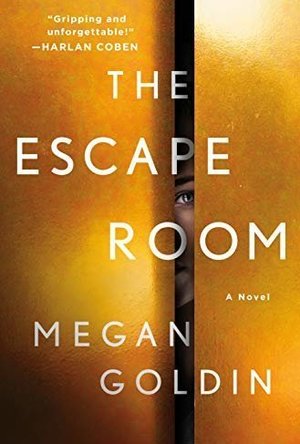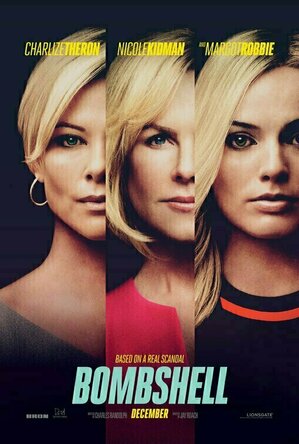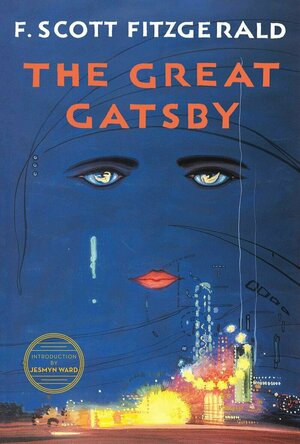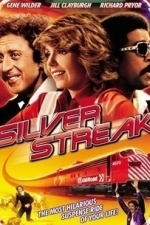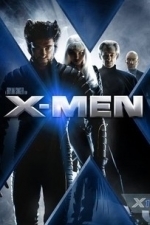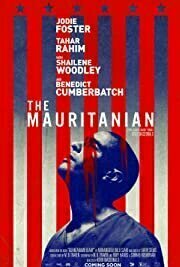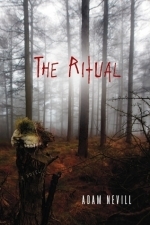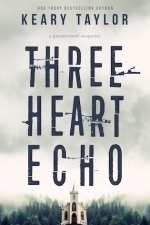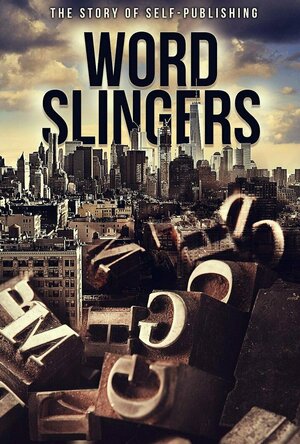Search
Search results
Kristy H (1252 KP) rated The Escape Room in Books
Jul 2, 2019
This was a really fun, bizarre read that I very much enjoyed. I had no idea where it was going for much of the book, but that was totally okay. It's told in very short, quick alternating chapters between members of our elevator group and then Sara Hall herself, back when she was alive and well and working at the firm. The result is a fast-paced read, as you wonder what on earth happened to Sara, whom actually seems like a human being compared to the four others. Our four trapped analysts, however, range across various levels of despicable--liars and cheaters all devoted to making money at any cost.
Truth be told, you can only feel so sorry for them to be trapped in this elevator in the dark, at the mercy of a screen doling out clues. Once in the dark, they turn violent at times: empowered against their boss, Vincent. You realize that they've sacrificed so much for their company that they basically have nothing left on the personal front.
It's a fascinating, gripping tale of what people will do to succeed, for revenge, and what they'll do when pushed to the brink. It's a really fast read. Is it a plausible story? Probably not. Is it fun, enjoyable, and full of twists and turns? Oh yeah. I could see this one as a movie, for sure. Definitely just a thrilling read to get lost in a for a couple of hours, especially if you enjoy the dark and twisted world of finance. 4+ stars!
Truth be told, you can only feel so sorry for them to be trapped in this elevator in the dark, at the mercy of a screen doling out clues. Once in the dark, they turn violent at times: empowered against their boss, Vincent. You realize that they've sacrificed so much for their company that they basically have nothing left on the personal front.
It's a fascinating, gripping tale of what people will do to succeed, for revenge, and what they'll do when pushed to the brink. It's a really fast read. Is it a plausible story? Probably not. Is it fun, enjoyable, and full of twists and turns? Oh yeah. I could see this one as a movie, for sure. Definitely just a thrilling read to get lost in a for a couple of hours, especially if you enjoy the dark and twisted world of finance. 4+ stars!
Emma @ The Movies (1786 KP) rated Bombshell (2019) in Movies
Jan 19, 2020
I had been wildly swaying between wanting and not wanting to see this, but Cineworld gave us an Unlimited Screening so of course I was going to go.
Life in the media spotlight is difficult enough without having to deal with the unwanted advances and comments of those around you. When one of Fox News' ex-employees comes forward with allegations of sexual harassment the whole network is a buzz as it tries to rally. Roger Ailes has a hold over everyone there and it's time someone put a stop to it.
Before I go into the acting I want to mention the style the movie has. There are sections done to camera in news report style, that seems like a given considering the subject matter, and as well as the "standard" on-screen there's some voiceover on scenes. The whole opening is done to camera in the news style and it sets up the story well, but I wasn't sure I enjoyed that later in the film, I like my fourth wall intact unless it involves Deadpool.
Out of our three leading ladies I was most impressed with Margot Robbie, potentially this is because she wasn't constrained by the role of real life person, Kayla's fictional amalgamation of people and experiences allows for more of a range. At times though I did think the role wasn't going anywhere but seeing her interactions with Lithgow as Ailes, and McKinnon as Carr, I was reassured.
The scene between Roger Ailes and Kayla that becomes the pivotal point in the story for her was excellent while actually being absolutely horrendous. That such a short scene can make me feel so much was a credit to both Robbie and Lithgow... and the sound department. Hearing his breathing so prominently was quite effective in the worst way possible.
Something they successfully managed to do throughout the film is show the competitive nature of the world and just a selection of the hideous things that are put up with through fear and ambition. There's one particular montage of moments with women defending their boss that illustrated that perfectly.
There's a very talented cast hidden in Bombshell, and I say hidden because at least half the people that popped on screen made me drop my jaw in surprise. I hadn't realised how many "cameos" there were, I'm sure I could have discovered them all on IMDb, it certainly helped to keep me interested. Though I don't think it necessarily needed that extra help.
Have you ever read a James Patterson novel? The chapters are so short, everything changes perspective so quickly that you're hooked and suddenly you've read half the book, this movie felt like that. As we switch scenes and characters you're constantly moved along at a pace that keeps you engaged, at no time did I feel like it was getting too confusing to follow, it was very well done.
I enjoyed the film but there's part of me that wonders if it did actually hit the mark. I'm left with one moment in particular that felt a little wrong, later in the movie between Pospisil (Robbie) and Kelly (Theron). It was the only moment that really hit me as feeling out of place. By that point we'd managed to get a lot of ideas about both characters and Kelly's behaviour and Pospisil's reaction stuck out like a sore thumb. It felt like a little slip in something that was otherwise a powerful watch.
While I don't think that every note was hit perfectly, overall Bombshell was a good exploration of this subject. With its impressive acting and great pace it's definitely an interesting addition to the conversations happening in the media at the moment.
Originally posted on: https://emmaatthemovies.blogspot.com/2020/01/bombshell-movie-review.html
Life in the media spotlight is difficult enough without having to deal with the unwanted advances and comments of those around you. When one of Fox News' ex-employees comes forward with allegations of sexual harassment the whole network is a buzz as it tries to rally. Roger Ailes has a hold over everyone there and it's time someone put a stop to it.
Before I go into the acting I want to mention the style the movie has. There are sections done to camera in news report style, that seems like a given considering the subject matter, and as well as the "standard" on-screen there's some voiceover on scenes. The whole opening is done to camera in the news style and it sets up the story well, but I wasn't sure I enjoyed that later in the film, I like my fourth wall intact unless it involves Deadpool.
Out of our three leading ladies I was most impressed with Margot Robbie, potentially this is because she wasn't constrained by the role of real life person, Kayla's fictional amalgamation of people and experiences allows for more of a range. At times though I did think the role wasn't going anywhere but seeing her interactions with Lithgow as Ailes, and McKinnon as Carr, I was reassured.
The scene between Roger Ailes and Kayla that becomes the pivotal point in the story for her was excellent while actually being absolutely horrendous. That such a short scene can make me feel so much was a credit to both Robbie and Lithgow... and the sound department. Hearing his breathing so prominently was quite effective in the worst way possible.
Something they successfully managed to do throughout the film is show the competitive nature of the world and just a selection of the hideous things that are put up with through fear and ambition. There's one particular montage of moments with women defending their boss that illustrated that perfectly.
There's a very talented cast hidden in Bombshell, and I say hidden because at least half the people that popped on screen made me drop my jaw in surprise. I hadn't realised how many "cameos" there were, I'm sure I could have discovered them all on IMDb, it certainly helped to keep me interested. Though I don't think it necessarily needed that extra help.
Have you ever read a James Patterson novel? The chapters are so short, everything changes perspective so quickly that you're hooked and suddenly you've read half the book, this movie felt like that. As we switch scenes and characters you're constantly moved along at a pace that keeps you engaged, at no time did I feel like it was getting too confusing to follow, it was very well done.
I enjoyed the film but there's part of me that wonders if it did actually hit the mark. I'm left with one moment in particular that felt a little wrong, later in the movie between Pospisil (Robbie) and Kelly (Theron). It was the only moment that really hit me as feeling out of place. By that point we'd managed to get a lot of ideas about both characters and Kelly's behaviour and Pospisil's reaction stuck out like a sore thumb. It felt like a little slip in something that was otherwise a powerful watch.
While I don't think that every note was hit perfectly, overall Bombshell was a good exploration of this subject. With its impressive acting and great pace it's definitely an interesting addition to the conversations happening in the media at the moment.
Originally posted on: https://emmaatthemovies.blogspot.com/2020/01/bombshell-movie-review.html
Veronica Pena (690 KP) rated The Great Gatsby in Books
Mar 20, 2020
I'm so disappointed with this book. I know how many people love it and that it's a classic and something almost everyone's read. I was really hoping it would hold up. Almost everyone I asked said they really liked it and they thought I would enjoy it too. I didn't.
Overall, I didn't really get the point of Nick's character. Or Jordan for that matter. It felt like they were just extras and useless. Gatsby is desperate and it comes across so obviously - is that on purpose? Tom is obviously the worst character - he's misogynistic and racist and a hypocrite. And then Daisy. She's just insecure and probably lonely (I'd be really surprised if she wasn't) and I just found her to be so annoying. She heard all these things about Jay and then automatically decided, "well, my sucky husband is alright. I guess I'll stay with him."
I feel like Nick was just supposed to be some outside character, more of a narrator, but if that's what Fitzgerald wanted, why not just narrate? Why have a whole character who is basically useless but being equal parts annoyed and fascinated by his mysterious neighbor? It just didn't really make any sense. Jordan also felt useless. She was there to stir the pot, let Nick in on the gossip, be his kind-of-friend, kind-of-love-interest but not really.
Apparently, I either missed the whole point of the book or it's really that bad and we've all been brainwashed. I'm going to go with the latter, but it very well could be the former. Don't discount my ability to have things go over my head. I guess I should watch the movie now and see what I think. Leonardo DiCaprio, here I come!
Overall, I didn't really get the point of Nick's character. Or Jordan for that matter. It felt like they were just extras and useless. Gatsby is desperate and it comes across so obviously - is that on purpose? Tom is obviously the worst character - he's misogynistic and racist and a hypocrite. And then Daisy. She's just insecure and probably lonely (I'd be really surprised if she wasn't) and I just found her to be so annoying. She heard all these things about Jay and then automatically decided, "well, my sucky husband is alright. I guess I'll stay with him."
I feel like Nick was just supposed to be some outside character, more of a narrator, but if that's what Fitzgerald wanted, why not just narrate? Why have a whole character who is basically useless but being equal parts annoyed and fascinated by his mysterious neighbor? It just didn't really make any sense. Jordan also felt useless. She was there to stir the pot, let Nick in on the gossip, be his kind-of-friend, kind-of-love-interest but not really.
Apparently, I either missed the whole point of the book or it's really that bad and we've all been brainwashed. I'm going to go with the latter, but it very well could be the former. Don't discount my ability to have things go over my head. I guess I should watch the movie now and see what I think. Leonardo DiCaprio, here I come!
BankofMarquis (1832 KP) rated Silver Streak (1976) in Movies
Jun 7, 2020
The start of a wonderful comedic partnership
Most people remember Gene Wilder as the frazzled haired wild man in such Mel Brooks classic films as THE PRODUCERS, BLAZING SADDLES and YOUNG FRANKENSTEIN. Others will recall him as the mad genius that held our attention in WILLY WONKA AND THE CHOCOLATE FACTORY, but there was a 3rd phase to Wilder's career - his unlikely partnership with Richard Pryor - that started with 1976's SILVER STREAK.
Set aboard the titular passenger train, SILVER STREAK is part Alfred Hitchcock "wrong man" suspense thriller, part comedy and part action flick with strong performances at the center anchoring the action.
Surprisingly, Wilder brings a sincere quality to his "everyman" hero of this tale. His book editor, George Caldwell, just wants a quiet 2 1/2 day trip on the train from Los Angeles to Chicago. You root for George from the start. Wilder's performance is deftly tailored to this movie, keeping a lid on his more frenetic energy that helps keep his character grounded. He pairs nicely with Jill Clayburgh (remember her from the '70's?) as a women he meets (and falls in love with) along the way. Clayburgh burst into the spotlight with this performance - and the 2 have tremendous chemistry together.
They are joined by a bevy of wonderful character actors - Ray Walston, Richard "Jaws" Kiel, Ned Beatty, Clifton James, Valerie Curtin, Fred Willard and the great Scatman Crothers. All bring life and energy to this film. Patrick McGoohan is perfectly cast as the villain of the piece. His "buttoned-up" bad guy is the perfect balance to the Wilder's character.
But, of course, the person who steals this film is the great Richard Pryor as Grover T. Muldoon, a petty thief, con-man and "street-wise" hood who aids George in defeating the bad guys. Pryor doesn't show up in this movie until about 1/2 way through, but when he does, the energy (and pace) of this film picks up considerably and the roller coaster ride begins. The comedic partnership between Wilder and Pryor is magnificent, they play off each other very well and they will end up pairing together in 3 other films after this.
Director Arthur Hiller (THE AMERICANIZATION OF EMILY) does a strong, professional job of keeping the movie moving, keeping events grounded until a thrilling conclusion that is satisfying, indeed.
A fun action-thriller that is perfect summer fodder.
Letter Grade: A-
8 stars (out of 10) and you can take that to the Bank(ofMarquis)
Set aboard the titular passenger train, SILVER STREAK is part Alfred Hitchcock "wrong man" suspense thriller, part comedy and part action flick with strong performances at the center anchoring the action.
Surprisingly, Wilder brings a sincere quality to his "everyman" hero of this tale. His book editor, George Caldwell, just wants a quiet 2 1/2 day trip on the train from Los Angeles to Chicago. You root for George from the start. Wilder's performance is deftly tailored to this movie, keeping a lid on his more frenetic energy that helps keep his character grounded. He pairs nicely with Jill Clayburgh (remember her from the '70's?) as a women he meets (and falls in love with) along the way. Clayburgh burst into the spotlight with this performance - and the 2 have tremendous chemistry together.
They are joined by a bevy of wonderful character actors - Ray Walston, Richard "Jaws" Kiel, Ned Beatty, Clifton James, Valerie Curtin, Fred Willard and the great Scatman Crothers. All bring life and energy to this film. Patrick McGoohan is perfectly cast as the villain of the piece. His "buttoned-up" bad guy is the perfect balance to the Wilder's character.
But, of course, the person who steals this film is the great Richard Pryor as Grover T. Muldoon, a petty thief, con-man and "street-wise" hood who aids George in defeating the bad guys. Pryor doesn't show up in this movie until about 1/2 way through, but when he does, the energy (and pace) of this film picks up considerably and the roller coaster ride begins. The comedic partnership between Wilder and Pryor is magnificent, they play off each other very well and they will end up pairing together in 3 other films after this.
Director Arthur Hiller (THE AMERICANIZATION OF EMILY) does a strong, professional job of keeping the movie moving, keeping events grounded until a thrilling conclusion that is satisfying, indeed.
A fun action-thriller that is perfect summer fodder.
Letter Grade: A-
8 stars (out of 10) and you can take that to the Bank(ofMarquis)
LeftSideCut (3776 KP) rated X-Men (2000) in Movies
Jun 7, 2019 (Updated Jun 8, 2019)
The first X-Men has not aged particularly well, but it's important to recognise it's impact on the movie landscape, especially for comic book films.
Although there has been comic book movies before, X-Men paved the way for everything that has come since, the good and the awful!
At the time it was almost magical, seeing characters I had grown up with flying about the screen (I was 12 when it was released), and the casting was inspired for the most part - Patrick Stewart, Ian McKellen, Hugh Jackman and Anna Paquin in particular.
It also started the trend of lacing the theatrics and seriousness with subtle humour thought, and the balance here is pretty good.
Even now, the CGI isn't terrible (certainly better than the later released Origins)
By the same merit, the costumes look goofy these days, some of the scripting is very 2000s, and why on Earth did they cast Tyler Mane as a weirdly mute Sabretooth will always be beyond me.
All in all, there are much better X-Men films out there, and there are a lot worse, and I'll always have a soft spot for it!
Although there has been comic book movies before, X-Men paved the way for everything that has come since, the good and the awful!
At the time it was almost magical, seeing characters I had grown up with flying about the screen (I was 12 when it was released), and the casting was inspired for the most part - Patrick Stewart, Ian McKellen, Hugh Jackman and Anna Paquin in particular.
It also started the trend of lacing the theatrics and seriousness with subtle humour thought, and the balance here is pretty good.
Even now, the CGI isn't terrible (certainly better than the later released Origins)
By the same merit, the costumes look goofy these days, some of the scripting is very 2000s, and why on Earth did they cast Tyler Mane as a weirdly mute Sabretooth will always be beyond me.
All in all, there are much better X-Men films out there, and there are a lot worse, and I'll always have a soft spot for it!
Bob Mann (459 KP) rated The Mauritanian (2021) in Movies
Apr 14, 2021
Great acting from all four leads, especially Tahar Rahim (2 more)
Great use of screen ratios for flashbacks
Very thought provoking
War crimes don't just happen on the battlefield
It’s 2001. Bush and Rumsfeld seek vengeance on the perpetrators of 9/11. Quite right too. But rounding up hundreds of suspects and incarcerating them for years, without charge, in Guantánamo Bay in Cuba was an appalling act for a supposedly first-world country.
“The Mauritanian” then is the true story of one such unfortunate – Mohamedou Ould Slahi, played by Tahar Rahim. We first join Slahi at a family wedding in Nouakchott (good “Pointless” answer for the capital of Mauritania people!). ‘Invited for questioning’ by the American authorities, we next see Slahi in the Cuban stronghold.
Pro-bono lawyer Nancy Hollander (Jodie Foster) becomes a pariah by picking up his defence. Supporting her is assistant Teri Duncan (Shailene Woodley). Hollander is very formal and professionally aloof, not assuming his guilt or innocence. After meeting the man, and assuming his innocence, Duncan though is more emotionally involved. The man opposing them at trial is US Army prosecutor Stuart Couch (Benedict Cumberbatch). Couch, having lost one of his best friends aboard the South Tower plane, has an axe to grind.
As the pair battle unseen forces for access to documentation, they uncover more and more of the truth about life in Guantánamo Bay.
Positives:
- I've not read the book so I found the story gripping. As the related legal information is divulged, the movie drip-feeds flashbacks of Slahia's story, which is clever.
- Acting wise, "The Mauritanian" has top notch stuff. Tahir Rahim is excellent as Slahia. He portrays charismatic and confident businessman, brought down to earth with a bump. Not recognizing him with an Oscar nomination feels like a minor crime. He will have to make do with the BAFTA nomination. Also brilliant is Jodie Foster. As the illustrious Mrs Movie Man pointed out, it's so nice to see an actress acting her age with confidence. The ever-watchable Shailene Woodley is also great, especially in a dramatic 'dismissal' scene. She adds some much needed warmth to the legal team. The southern drawl from Cumberbatch is a bit of a surprise and takes some getting used to. But it's still a strong performance from him.
- After ranting on last time at Zack Snyder's use of 4:3 screen ratios in "Justice League", here is an intelligent use of the technique. The film is in 16:9 ratio, but then pivots to 4:3 for all of the Guantanamo flashback scenes, reflecting the claustrophobia of Slahia's position.
- Real-life footage over the closing titles is absolutely fascinating.
Negatives:
- I personally didn't find this a particular negative, but I went into the film knowing it to be a "legal drama". So there would be lots of scenes, as in "The Trial of the Chicago 7", with courtroom debate and gavel-banging, right? Actually, there is almost none of that. Most of the legal action is in terms of the preparation of the case and the paperwork involved. (If this makes the movie sound excruciatingly dull... think again!)
- The Guantanamo story ends quite abruptly (with the above-mentioned jolt), and left me wanting to see more of the intervening time. It's not often that I complain about a film running too short, but here is one where just a little of "the Snyder treatment" might have been welcomed!
Additional Note for the squeamish: For those worried about seeing distressing scenes of torture (e.g. Fingernail extraction, etc), these are - although disturbing - more of the "psychological torment" type. So those of a squeamish disposition can still watch this one.
Summary Thoughts:
The fact that "The Mauritanian" is a true story hammers home just what the US has been up to over the last 20 years. War crimes are not only committed on the battlefield.
Director Kevin Macdonald is no stranger to documentaries ("Touching the Void", "Whitney"). He's also proved adept at bringing gripping true stories to the screen (having previously given us "The Last King of Scotland"). Here, the emotional journeys of the key characters are well observed making the movie 'highly recommended'.
For the full One Mann's Movies review see here - https://bob-the-movie-man.com/2021/04/09/the-mauritanian-america-are-you-squirming-with-embarrassment/
“The Mauritanian” then is the true story of one such unfortunate – Mohamedou Ould Slahi, played by Tahar Rahim. We first join Slahi at a family wedding in Nouakchott (good “Pointless” answer for the capital of Mauritania people!). ‘Invited for questioning’ by the American authorities, we next see Slahi in the Cuban stronghold.
Pro-bono lawyer Nancy Hollander (Jodie Foster) becomes a pariah by picking up his defence. Supporting her is assistant Teri Duncan (Shailene Woodley). Hollander is very formal and professionally aloof, not assuming his guilt or innocence. After meeting the man, and assuming his innocence, Duncan though is more emotionally involved. The man opposing them at trial is US Army prosecutor Stuart Couch (Benedict Cumberbatch). Couch, having lost one of his best friends aboard the South Tower plane, has an axe to grind.
As the pair battle unseen forces for access to documentation, they uncover more and more of the truth about life in Guantánamo Bay.
Positives:
- I've not read the book so I found the story gripping. As the related legal information is divulged, the movie drip-feeds flashbacks of Slahia's story, which is clever.
- Acting wise, "The Mauritanian" has top notch stuff. Tahir Rahim is excellent as Slahia. He portrays charismatic and confident businessman, brought down to earth with a bump. Not recognizing him with an Oscar nomination feels like a minor crime. He will have to make do with the BAFTA nomination. Also brilliant is Jodie Foster. As the illustrious Mrs Movie Man pointed out, it's so nice to see an actress acting her age with confidence. The ever-watchable Shailene Woodley is also great, especially in a dramatic 'dismissal' scene. She adds some much needed warmth to the legal team. The southern drawl from Cumberbatch is a bit of a surprise and takes some getting used to. But it's still a strong performance from him.
- After ranting on last time at Zack Snyder's use of 4:3 screen ratios in "Justice League", here is an intelligent use of the technique. The film is in 16:9 ratio, but then pivots to 4:3 for all of the Guantanamo flashback scenes, reflecting the claustrophobia of Slahia's position.
- Real-life footage over the closing titles is absolutely fascinating.
Negatives:
- I personally didn't find this a particular negative, but I went into the film knowing it to be a "legal drama". So there would be lots of scenes, as in "The Trial of the Chicago 7", with courtroom debate and gavel-banging, right? Actually, there is almost none of that. Most of the legal action is in terms of the preparation of the case and the paperwork involved. (If this makes the movie sound excruciatingly dull... think again!)
- The Guantanamo story ends quite abruptly (with the above-mentioned jolt), and left me wanting to see more of the intervening time. It's not often that I complain about a film running too short, but here is one where just a little of "the Snyder treatment" might have been welcomed!
Additional Note for the squeamish: For those worried about seeing distressing scenes of torture (e.g. Fingernail extraction, etc), these are - although disturbing - more of the "psychological torment" type. So those of a squeamish disposition can still watch this one.
Summary Thoughts:
The fact that "The Mauritanian" is a true story hammers home just what the US has been up to over the last 20 years. War crimes are not only committed on the battlefield.
Director Kevin Macdonald is no stranger to documentaries ("Touching the Void", "Whitney"). He's also proved adept at bringing gripping true stories to the screen (having previously given us "The Last King of Scotland"). Here, the emotional journeys of the key characters are well observed making the movie 'highly recommended'.
For the full One Mann's Movies review see here - https://bob-the-movie-man.com/2021/04/09/the-mauritanian-america-are-you-squirming-with-embarrassment/
Sensitivemuse (246 KP) rated The Ritual in Books
Nov 17, 2017
Great Horror, Could have been shorter.
So you know when you’re watching a horror movie and there’s an unseen being involved and you only catch little glimpses here and there throughout the film, and when you do actually see it you think (or more likely, scream out) WHAT THE HELL IS THAT?
Yeah that’s basically what you get throughout the book. It could be similar horror elements like Blair Witch Project, only you do find out what it is towards the latter part of the story. (And it’s still pretty creepy to figure out and picture).
I really do enjoy the horror aspects in this book and the feelings it invokes. You can really feel the desperation, frustration, and anguish felt within the characters. Tempers flare and understandably fights happen from within the group. You feel Luke’s anger and his highs and lows as you follow him throughout this horror journey.
There’s not many twists or blindside moments in this book it’s pretty much standard that you would see in horror books but the setting is very well done. A remote forest in Scandinavia while there’s something big and bad out there provides great atmosphere for the dark and scary.
It does drag out through the last third of the novel where you just have to feel for Luke and you wonder how much the human spirit can take. The ending really should have ended about 50 pages ago and there is repetition through the novel that some may find a trial to go through when reading. It’s manageable most of the time but I was close to losing my interest towards the end of the novel but powered through. It was still an enjoyable read, and recommended for those that want a good solid horror.
I’ll be reading more of his books for sure. I enjoyed the thrill and can only imagine what his other books will be like.
Yeah that’s basically what you get throughout the book. It could be similar horror elements like Blair Witch Project, only you do find out what it is towards the latter part of the story. (And it’s still pretty creepy to figure out and picture).
I really do enjoy the horror aspects in this book and the feelings it invokes. You can really feel the desperation, frustration, and anguish felt within the characters. Tempers flare and understandably fights happen from within the group. You feel Luke’s anger and his highs and lows as you follow him throughout this horror journey.
There’s not many twists or blindside moments in this book it’s pretty much standard that you would see in horror books but the setting is very well done. A remote forest in Scandinavia while there’s something big and bad out there provides great atmosphere for the dark and scary.
It does drag out through the last third of the novel where you just have to feel for Luke and you wonder how much the human spirit can take. The ending really should have ended about 50 pages ago and there is repetition through the novel that some may find a trial to go through when reading. It’s manageable most of the time but I was close to losing my interest towards the end of the novel but powered through. It was still an enjoyable read, and recommended for those that want a good solid horror.
I’ll be reading more of his books for sure. I enjoyed the thrill and can only imagine what his other books will be like.
Sophia (Bookwyrming Thoughts) (530 KP) rated The Polaris Uprising (Polaris, #1) in Books
Jan 23, 2020
Another bystander review yet again. T_T But throughout the story, I was making connections – yet again – to movies and books:
Corsets – Incarceron. Mercifully no prisons.
Probe Bots – *that seriously cute voice from that one movie* Wall-E! Of course, those robots had inflection and it's not Wall-E's voice I'm calling cute.
Arranged Marriages – At the time I started The Polaris Uprising, I completed Delirium not too long ago and it turned out to be a TERRIBLE experience. Fortunately, this book fared better off and it's not similar to Delirium. *phew* In fact... this quote got me quite worried:
<blockquote>When you’re president, this will all be a distant memory.</blockquote>
Is this similar to "When you're cured, this will all be a distant memory" or what? I could have sworn I saw that exact same sentence in Delirium a million times maybe. O_O (Obviously I didn't let that stop me from continuing).
Truth Serum – Welcome to the Candor faction. Need I say more?
That one sentence before this: And then all hell broke loose – Similar to The Hunger Games, but different. And no, that's no spoiler. Close, but no.
<blockquote>Alanna! Alanna!</blockquote>
e_e 1984's B! B! B! That book was quite dreadful, so I'm surprised I still remember the letter B! (that was not me in exclamation).
Now that I've gone through my dreadful (and some positive) experiences with some dystopians, let's get on with some positive notes and why I gave The Polaris Uprising a high rating:
~ The message comes across clearly throughout the book. Maybe confusing at first (switching views from the prologue and first chapter), but everything fits in nicely later.
~ Here's the big plus: it's different from other dystopians. As in really different. How? It's like many years later, a dystopian AFTER another dystopian failed. At least, that's what I assume. The signs were there, which brings me to my next point.
~ Dare to be different. I would've had to choose a faction back in September if I were in Divergent (Movie's out in 28 DAYS). Here, you're an adult at 25. That gives me what? 7-8 years to be a semi-kid? Yippee.
~ This might actually take a different end from other dystopians. Of course, there's no guarantee, so don't take that word for granted.
But overall, an impressive debut novel for Jennifer Ibarra.
-----------------------
Review copy provided by the author for review on the blog tour
Formatting is lost due to copy and paste
This review and more can be found at <a href="http://bookwyrming-thoughts.blogspot.com/2014/02/blog-tour-the-polaris-uprising-by-jennifer-ibarra-review-and-giveaway.html">Bookwyrming Thoughts</a>
<a href="http://bookwyrming-thoughts.blogspot.com/"><img src="http://4.bp.blogspot.com/-Gi5Rk5yLloA/UtliaUbdL3I/AAAAAAAACbE/J27z92_qrYU/s1600/Official+Banner.png"; /></a>
Corsets – Incarceron. Mercifully no prisons.
Probe Bots – *that seriously cute voice from that one movie* Wall-E! Of course, those robots had inflection and it's not Wall-E's voice I'm calling cute.
Arranged Marriages – At the time I started The Polaris Uprising, I completed Delirium not too long ago and it turned out to be a TERRIBLE experience. Fortunately, this book fared better off and it's not similar to Delirium. *phew* In fact... this quote got me quite worried:
<blockquote>When you’re president, this will all be a distant memory.</blockquote>
Is this similar to "When you're cured, this will all be a distant memory" or what? I could have sworn I saw that exact same sentence in Delirium a million times maybe. O_O (Obviously I didn't let that stop me from continuing).
Truth Serum – Welcome to the Candor faction. Need I say more?
That one sentence before this: And then all hell broke loose – Similar to The Hunger Games, but different. And no, that's no spoiler. Close, but no.
<blockquote>Alanna! Alanna!</blockquote>
e_e 1984's B! B! B! That book was quite dreadful, so I'm surprised I still remember the letter B! (that was not me in exclamation).
Now that I've gone through my dreadful (and some positive) experiences with some dystopians, let's get on with some positive notes and why I gave The Polaris Uprising a high rating:
~ The message comes across clearly throughout the book. Maybe confusing at first (switching views from the prologue and first chapter), but everything fits in nicely later.
~ Here's the big plus: it's different from other dystopians. As in really different. How? It's like many years later, a dystopian AFTER another dystopian failed. At least, that's what I assume. The signs were there, which brings me to my next point.
~ Dare to be different. I would've had to choose a faction back in September if I were in Divergent (Movie's out in 28 DAYS). Here, you're an adult at 25. That gives me what? 7-8 years to be a semi-kid? Yippee.
~ This might actually take a different end from other dystopians. Of course, there's no guarantee, so don't take that word for granted.
But overall, an impressive debut novel for Jennifer Ibarra.
-----------------------
Review copy provided by the author for review on the blog tour
Formatting is lost due to copy and paste
This review and more can be found at <a href="http://bookwyrming-thoughts.blogspot.com/2014/02/blog-tour-the-polaris-uprising-by-jennifer-ibarra-review-and-giveaway.html">Bookwyrming Thoughts</a>
<a href="http://bookwyrming-thoughts.blogspot.com/"><img src="http://4.bp.blogspot.com/-Gi5Rk5yLloA/UtliaUbdL3I/AAAAAAAACbE/J27z92_qrYU/s1600/Official+Banner.png"; /></a>
Acanthea Grimscythe (300 KP) rated Three Heart Echo in Books
May 16, 2018
Three Heart Echo by Keary Taylor ended up on my reading list by yet another mislabeling on NetGalley, I must admit. As seen in the title image above, the book is a paranormal suspense. If you’ve read my blog for any length of time, you’ll no doubt guess that I grabbed it from the horror genre titles. Fortunately, after revisiting its cover I can at least say that its actual genre is the right one. While Three Heart Echo does have some elements of horror, it reads more like a paranormal-themed Lifetime movie.
Taking place soon after the death of Jack Caraway, Three Heart Echo tells the story of two vastly different people meeting and, you guessed it, falling in love. It’s not that simple though, and several of the more twisted things that one might expect from a horror novel surface throughout the plot. Iona Faye, a frail woman mourning the death of her fiance, seeks out Sully Whitmore, a man rumored to be able to speak to the dead. Together, the two unravel the darkness of Jack’s past while racing against time to unravel not one, but two curses.
The plot is fairly linear, with only one unexpected twist at the end. That twist defines much of the book though, and I have to admit that I actually felt anger flare up within me. I’ve gotta give Taylor kudos for that one. What I don’t like, besides the heavily romantic subplot, is the fact that, as readers see in many romance books, we’re dealing with two Mary Sue characters. Iona is described as a beautiful fawn whilst Sully is a giant Viking of a man. Catch my drift? Oh, and poor dead Jack? Apparently, he’s a stunner too.
While the plot is straightforward, Taylor also alternates between perspectives on chapters. Now, as a reader, you may think I mean she goes back and forth between past and present. It’s common enough when we read books, after all. Unfortunately, what I mean is that Taylor switches between perspectives of Sully and Iona. For the most part, the switches follow a pattern. There is some story overlap/repetition within those shifts, but it isn’t terrible. What perturbs me about these perspectives is that every now and then, there’s a break to the pattern where it may take some readers a moment to realize that the book has suddenly shifted to the past without warning.
Back to the romance side of things, there are far too many cliches. Poor, helpless main character gets an indescribable pain in their chest and they can’t fathom why it feels like their heart races when they look upon their love interest. As if that’s not bad enough, you know from the get-go that there’s going to be a love story involved. It’s not well enough to leave it a paranormal suspense, we might as well make it a romance too. Because y’know, two attractive people can’t simply be friends!
Speaking of chest pain, there’s another thing about this book that absolutely irked me. I could understand if one character had an odd need to count things. It happens and OCD is a real thing; but, what I’m referring to, is the need by both characters to take exactly five steps, to blink four times, to wait for three heartbeats before they do something so much as take a breath.
Finally, what the hell is a grand opus? The actual term is magnum opus. I’lll hope it was just a typo that was fixed in the final, published copy of the Three Heart Echo. Overall, the story itself is engaging to a degree, but it definitely wasn’t my style. I think it belongs more in the paranormal romance genre than it does horror.
I’d like to thank NetGalley and the author for providing me with a free copy for the purpose of review.
Taking place soon after the death of Jack Caraway, Three Heart Echo tells the story of two vastly different people meeting and, you guessed it, falling in love. It’s not that simple though, and several of the more twisted things that one might expect from a horror novel surface throughout the plot. Iona Faye, a frail woman mourning the death of her fiance, seeks out Sully Whitmore, a man rumored to be able to speak to the dead. Together, the two unravel the darkness of Jack’s past while racing against time to unravel not one, but two curses.
The plot is fairly linear, with only one unexpected twist at the end. That twist defines much of the book though, and I have to admit that I actually felt anger flare up within me. I’ve gotta give Taylor kudos for that one. What I don’t like, besides the heavily romantic subplot, is the fact that, as readers see in many romance books, we’re dealing with two Mary Sue characters. Iona is described as a beautiful fawn whilst Sully is a giant Viking of a man. Catch my drift? Oh, and poor dead Jack? Apparently, he’s a stunner too.
While the plot is straightforward, Taylor also alternates between perspectives on chapters. Now, as a reader, you may think I mean she goes back and forth between past and present. It’s common enough when we read books, after all. Unfortunately, what I mean is that Taylor switches between perspectives of Sully and Iona. For the most part, the switches follow a pattern. There is some story overlap/repetition within those shifts, but it isn’t terrible. What perturbs me about these perspectives is that every now and then, there’s a break to the pattern where it may take some readers a moment to realize that the book has suddenly shifted to the past without warning.
Back to the romance side of things, there are far too many cliches. Poor, helpless main character gets an indescribable pain in their chest and they can’t fathom why it feels like their heart races when they look upon their love interest. As if that’s not bad enough, you know from the get-go that there’s going to be a love story involved. It’s not well enough to leave it a paranormal suspense, we might as well make it a romance too. Because y’know, two attractive people can’t simply be friends!
Speaking of chest pain, there’s another thing about this book that absolutely irked me. I could understand if one character had an odd need to count things. It happens and OCD is a real thing; but, what I’m referring to, is the need by both characters to take exactly five steps, to blink four times, to wait for three heartbeats before they do something so much as take a breath.
Finally, what the hell is a grand opus? The actual term is magnum opus. I’lll hope it was just a typo that was fixed in the final, published copy of the Three Heart Echo. Overall, the story itself is engaging to a degree, but it definitely wasn’t my style. I think it belongs more in the paranormal romance genre than it does horror.
I’d like to thank NetGalley and the author for providing me with a free copy for the purpose of review.
Bob Mann (459 KP) rated Wordslingers: The Story of Self-Publishing (2021) in Movies
Sep 28, 2021
They say that everyone has a book in them. I guess the key question is whether anyone else wants to read it. Such is the subject of this new documentary from A. Brooks Bennett. As a publisher says at one point “Writing a book is a creative act; publishing a book is a business”.
The democratization of publishing
The internet has brought many advantages to modern life, but perhaps one of the most interesting is the democratization of publishing. No longer is control in the hands of publishing houses, who might glance at and immediately dismiss new ideas in literature. It’s worth remembering that 12 publishing houses turned down J.K. Rowling’s draft for Harry Potter! Now anyone can be creative in writing and self-publish on the web. My own wife – Sue Mann – did just this, self-publishing the WW1 poems and reminiscences of two of her great-uncles. (It’s available from all good bookshops… oh, no…. actually just from here!) Are the poems artistically any good? I have no idea! Will it sell many copies? Clearly not! Was it a personal goal achieved in honouring their memory? Absolutely! Different people want different things from the medium.
Very ‘American’.
It’s probably down to the pioneer spirit, but as a generalisation Americans seem far more ambitious than Brits: or at least, more OPENLY ambitious. Whereas most Brits will quietly get on with building their careers, some Americans will go hell-for-leather towards their vision of “success” no matter the cost: no guts; no glory; and be noisy about it!
But for every J.K. Rowling or Bill Bryson there are several thousand writers who have ‘failed to launch’.
Here we follow two budding authors – one from California; the other from North Carolina – self-publishing their work and seeking sales.
One – Giles A (“Andy”) Anderson – has self-published a seemingly disturbing work called “Vidu” – the first of what he hopes will be a five-part series. He first talks from a ghoulish bookstore, speaking psycho-babble with the requisite hyperbole of an ‘artiste’. (It suggests how the books might read… but perhaps that’s misjudging). It comes then as a surprise when we find he doesn’t live alone in a coffin playing video games on his own, but has a lovely wife and two young and perfectly normal children. So his book is an “off the beaten track kinda book”, but the man seems well-grounded and following his dream in bite-size pieces.
Moral: Avoid the Travel Books
As is often the case though, the documentary homes in on, and spends most of its time with, the other author – Adam Shephard. Shephard is struggling to launch as an author and also – in parallel – wrestling with the Green Card process for his supportive and vivacious Croatian wife Ivana. The problem is that Shephard has written an extended travel blog: ten-a-penny on sites like WordPress.
I read a Forbes article last year that reported that – astonishingly – in a survey 11% of American respondents had never travelled outside of their home state and 40% had never left the country. For such a well-heeled country, the US is incredibly insular. So Shephard’s vision is to encourage youngsters to step outside of their comfort zone and jump on that plane to Guatemala. It’s a fine objective. But does anyone want to listen? And – crucially – is the book any good and commercial enough? As the famous ‘founder of self-publishing’, the late Dan Poynter (to who the film is dedicated) says “You can’t make any money off a travel book”.
The film never goes as far as having either of the featured books critically reviewed: that might have added some extra spice to the story (and possibly provoked some painful reactions). But the piles of unopened boxes in Adam’s clinically white storage facility rather speaks for itself. Since Shephard never seems to do anything by halves, the boxes are piled high and thus the fall from grace is hard, long…. and absolutely riveting. (Ivana’s support and love in such difficult circumstances is commendable: he is a truly blessed man).
Jaw-dropping Walmart scene
At least at the start of the film, Adam’s self-belief and confidence in himself is infectious. The peak of his bravado, and a jaw-dropping highpoint in the movie for me, was a scene filmed in Walmart. Shephard, in a case of “reverse shoplifting”, sneaks HIS books onto the bookshelves of Walmart. What happens when they then try to buy one? It’s a real eye-opener and worth watching the documentary for in its own right.
It’s an interesting legal position: if Walmart were to be upset about this scene, what on earth could they charge them with!? Littering?
Highs and lows.
Shephard seems to have talent as a speaker, and it struck me that he would be genuinely suited to a job in sales. In the movie we see him performing self-confidence-building pitches to young people (and, boy, could we sometimes use that in the UK post-Brexit). A few books sold. But another event barely breaking even. The pattern becomes familiar and, in a way, rather tragic.
There are unexpected highs and lows for Adam and Ivana along the way though, unrelated to the publishing story, and the filmmaker skillfully weaves them into the narrative to good effect.
Thought-provoking.
I watched this on a whim and thought I’d probably switch off after 10 minutes. Documentaries normally are not my thing! But no. It had me gripped to see how things would turn out – like watching a slow-motion car crash! The journey was well-worth the ride: a real page-turner you might say.
The democratization of publishing
The internet has brought many advantages to modern life, but perhaps one of the most interesting is the democratization of publishing. No longer is control in the hands of publishing houses, who might glance at and immediately dismiss new ideas in literature. It’s worth remembering that 12 publishing houses turned down J.K. Rowling’s draft for Harry Potter! Now anyone can be creative in writing and self-publish on the web. My own wife – Sue Mann – did just this, self-publishing the WW1 poems and reminiscences of two of her great-uncles. (It’s available from all good bookshops… oh, no…. actually just from here!) Are the poems artistically any good? I have no idea! Will it sell many copies? Clearly not! Was it a personal goal achieved in honouring their memory? Absolutely! Different people want different things from the medium.
Very ‘American’.
It’s probably down to the pioneer spirit, but as a generalisation Americans seem far more ambitious than Brits: or at least, more OPENLY ambitious. Whereas most Brits will quietly get on with building their careers, some Americans will go hell-for-leather towards their vision of “success” no matter the cost: no guts; no glory; and be noisy about it!
But for every J.K. Rowling or Bill Bryson there are several thousand writers who have ‘failed to launch’.
Here we follow two budding authors – one from California; the other from North Carolina – self-publishing their work and seeking sales.
One – Giles A (“Andy”) Anderson – has self-published a seemingly disturbing work called “Vidu” – the first of what he hopes will be a five-part series. He first talks from a ghoulish bookstore, speaking psycho-babble with the requisite hyperbole of an ‘artiste’. (It suggests how the books might read… but perhaps that’s misjudging). It comes then as a surprise when we find he doesn’t live alone in a coffin playing video games on his own, but has a lovely wife and two young and perfectly normal children. So his book is an “off the beaten track kinda book”, but the man seems well-grounded and following his dream in bite-size pieces.
Moral: Avoid the Travel Books
As is often the case though, the documentary homes in on, and spends most of its time with, the other author – Adam Shephard. Shephard is struggling to launch as an author and also – in parallel – wrestling with the Green Card process for his supportive and vivacious Croatian wife Ivana. The problem is that Shephard has written an extended travel blog: ten-a-penny on sites like WordPress.
I read a Forbes article last year that reported that – astonishingly – in a survey 11% of American respondents had never travelled outside of their home state and 40% had never left the country. For such a well-heeled country, the US is incredibly insular. So Shephard’s vision is to encourage youngsters to step outside of their comfort zone and jump on that plane to Guatemala. It’s a fine objective. But does anyone want to listen? And – crucially – is the book any good and commercial enough? As the famous ‘founder of self-publishing’, the late Dan Poynter (to who the film is dedicated) says “You can’t make any money off a travel book”.
The film never goes as far as having either of the featured books critically reviewed: that might have added some extra spice to the story (and possibly provoked some painful reactions). But the piles of unopened boxes in Adam’s clinically white storage facility rather speaks for itself. Since Shephard never seems to do anything by halves, the boxes are piled high and thus the fall from grace is hard, long…. and absolutely riveting. (Ivana’s support and love in such difficult circumstances is commendable: he is a truly blessed man).
Jaw-dropping Walmart scene
At least at the start of the film, Adam’s self-belief and confidence in himself is infectious. The peak of his bravado, and a jaw-dropping highpoint in the movie for me, was a scene filmed in Walmart. Shephard, in a case of “reverse shoplifting”, sneaks HIS books onto the bookshelves of Walmart. What happens when they then try to buy one? It’s a real eye-opener and worth watching the documentary for in its own right.
It’s an interesting legal position: if Walmart were to be upset about this scene, what on earth could they charge them with!? Littering?
Highs and lows.
Shephard seems to have talent as a speaker, and it struck me that he would be genuinely suited to a job in sales. In the movie we see him performing self-confidence-building pitches to young people (and, boy, could we sometimes use that in the UK post-Brexit). A few books sold. But another event barely breaking even. The pattern becomes familiar and, in a way, rather tragic.
There are unexpected highs and lows for Adam and Ivana along the way though, unrelated to the publishing story, and the filmmaker skillfully weaves them into the narrative to good effect.
Thought-provoking.
I watched this on a whim and thought I’d probably switch off after 10 minutes. Documentaries normally are not my thing! But no. It had me gripped to see how things would turn out – like watching a slow-motion car crash! The journey was well-worth the ride: a real page-turner you might say.
